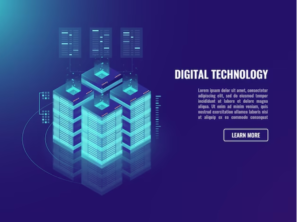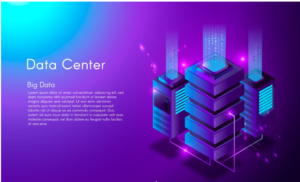Virtual Data Rooms in the Energy Sector are paramount in the dynamic and data-driven energy industry. These days, virtual data rooms (VDRs) are needed since they provide a safe space where confidential documents may be managed and shared easily. Let’s investigate how VDRs are revolutionizing information management in the energy sector while guaranteeing the highest levels of security.
Information security is a top priority for the oil and gas, renewable energy, and utilities industries. There is a pressing need for a safe and well-organized system for managing data, from confidential exploration information to financial transactions. Virtual data rooms serve as a customized solution, offering a secure online venue for parties to share and work on sensitive documents.

Advantages of Virtual Data Rooms in the Energy Sector for the Energy Industry
Additional Safety Precautions:
Encrypting sensitive information using cutting-edge methods helps prevent unwanted access.
By limiting access to those who need it, “granular access controls” keep private files out of the wrong hands.
Improved Efficiency of Due Diligence Procedures:
We are centralizing and arranging necessary paperwork facilitate effective due diligence processes during mergers and acquisitions.
I am helping meet strict regulatory standards by offering a safe place to share documents.
Cooperation Virtual Data Rooms in the Energy Sector
Accessibility from a distance facilitates open lines of communication by letting stakeholders access and share vital data from any location.
For collaborative initiatives in the energy sector, document versioning is essential for tracking changes and keeping documents intact.
Use in the Real World:
Companies can safely share geological survey data and drilling reports for use in exploration and production. Virtual data rooms simplify coordination between the many parties involved in renewable energy projects by giving them a safe place to store and share sensitive paperwork. Utility companies gain from having their regulatory documentation and operating data neatly filed.
Prospects for Energy Data Management in the Future
The importance of Virtual Data Rooms in protecting sensitive information is only expected to grow as the energy industry undergoes more transformation. In addition to meeting urgent data management requirements, these trustworthy systems boost productivity, conformity, and stakeholder trust.
In the energy industry, VDRs are revolutionizing the storage and management of sensitive data. Data integrity and confidentiality are non-negotiable requirements in many fields, making virtual data rooms (VDRs) a valuable tool because of their robust security features and faster communication. Virtual data rooms are the way of the future for energy industry data management.
The Value of Secure Online Data Storage for the Energy Industry
Protecting sensitive data is crucial in the ever-changing energy industry. As the energy sector continues to embrace digitalization, Virtual Data Rooms (VDRs) have become essential for protecting the privacy and integrity of critical documents and other records.
The Energy Industry and the Value of Virtual Data Rooms
Virtual Data Rooms serve as secure online repositories particularly customized for the energy sector, enabling a regulated environment for storing, managing, and exchanging sensitive data. Regarding the energy industry, these platforms are indispensable for various activities, including mergers and acquisitions, project partnerships, regulatory compliance, and IP protection.
Strengthening Energy Virtual Data Rooms in the Energy Sector
Virtual data rooms serve an essential function by offering high levels of security in an industry where privacy is crucial.
High-Level Encryption To secure energy documents, virtual data rooms employ AES with 256-bit encryption.
So, only authorized users can see or edit sensitive files, and administrators have fine-grained access control. Granular control ensures that only authorized users may access crucial information.
Virtual Data Rooms in Energy Sectors’ tracking systems generate detailed audit trails for real-time user activity monitoring. Openness helps find security flaws and encourages responsibility.
Virtual data rooms facilitate energy-related information sharing and cooperation across geographically distant teams.
VDRs’ robust security features make satisfying strict regulatory requirements easier, ensuring compliance with industry-specific laws.
VDRs make due diligence for energy business mergers, acquisitions, and partnerships safe, boosting stakeholder confidence.
The energy business uses virtual data rooms (VDRs) more due to their various benefits, including data security. Virtual data rooms protect sensitive data in the ever-changing energy industry. Energy Industry Value of Secure Online Data Storage
In the ever-changing energy business, data security is essential. Virtual Data Rooms (VDRs) are vital for securing critical papers and other assets as the energy sector digitizes.
The Energy Industry and the theVirtual Data Rooms in the Energy Sector
Virtual Data Rooms serve as secure online repositories particularly customized for the energy sector, enabling a regulated environment for storing, managing, and exchanging sensitive data. Regarding the energy industry, these platforms are indispensable for various activities, including mergers and acquisitions, project partnerships, regulatory compliance, and IP protection.

Strengthening Energy Sector Protections
Virtual data rooms serve an essential function by offering high levels of security in an industry where privacy is crucial.
Top-Level Encryption Protocols Virtual data rooms use advanced encryption standards like Advanced Encryption Standard (AES) with 256-bit encryption to protect confidential energy papers from prying eyes.
Administrators have fine-grained control over who has access to what, so only authorized users may see sensitive files or change them. This granular control guarantees that critical information is available only to those with the necessary clearance.
Detailed audit trails are created by the VDR’s in-built tracking systems, allowing for real-time user activity monitoring. This openness helps to root out any security breaches and promotes responsibility.
Virtual data rooms simplify energy-related information sharing and collaboration across globally located teams.
Compliance: VDRs’ robust security capabilities make satisfying strict regulatory requirements easier, ensuring industry-specific regulation compliance.
VDRs increase stakeholder confidence and trust throughout energy industry mergers, acquisitions, and partnerships by providing safe due diligence settings.
Conclusion
Virtual data rooms (VDRs) are utilized more in the energy business due to their various benefits, including data security. The ever-changing energy industry relies on virtual data rooms to protect sensitive data.
FAQs:
The energy industry is dynamic; thus, protecting sensitive data is crucial. Our frequently asked questions explain virtual Data Rooms (VDRs) in the energy sector. Learn how these systems protect sensitive data, promote practical cooperation, and enforce rules in this vital business.
1. What is the purpose of a virtual data room?
A Virtual Data Room (VDR) is an energy industry-optimized online storage service. Its main objective is safeguarding energy-related private data, including M&A, collaboration, compliance with legislation, and IP protection.
2. What are the different types of data rooms?
The answer is that there is a wide variety of data rooms designed to meet the requirements of diverse fields. VDRs (virtual data rooms) are widespread in the energy industry. These secure online platforms are customized to the unique requirements of the energy business, providing extensive security features for the preservation and cooperation of sensitive information.
3. What is an example of a data room?
This industry uses a Virtual Data Room (VDR) for energy-related tasks. Firmex, Intralinks, and Merrill Corporation offer secure virtual data room (VDR) solutions for document sharing and collaboration in energy industry.
4. What is the best virtual data room?
The “best” virtual data room will rely on your unique business needs and preferences. However, major energy service providers provide highly secure solutions, intuitive interfaces, and strong collaboration possibilities. Firmex, Intralinks, Merrill Corporation, and others offer energy industry-specific functionality.

